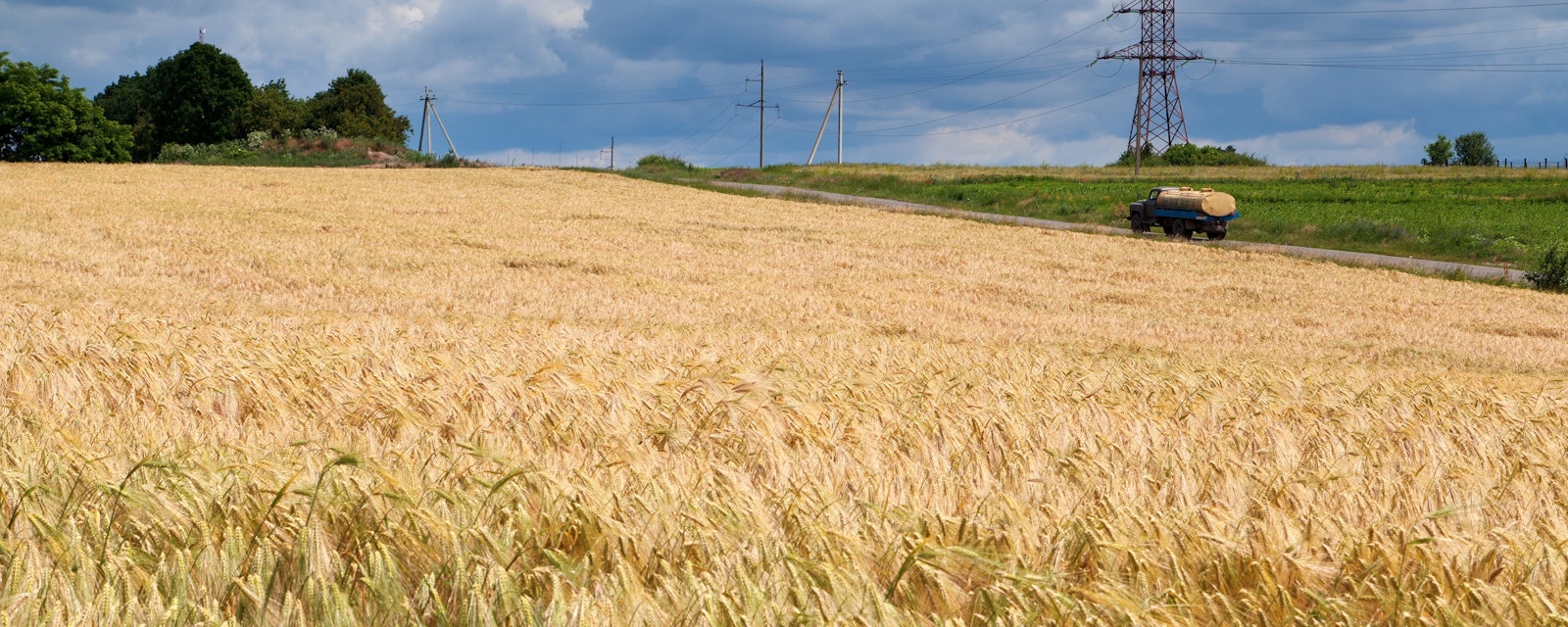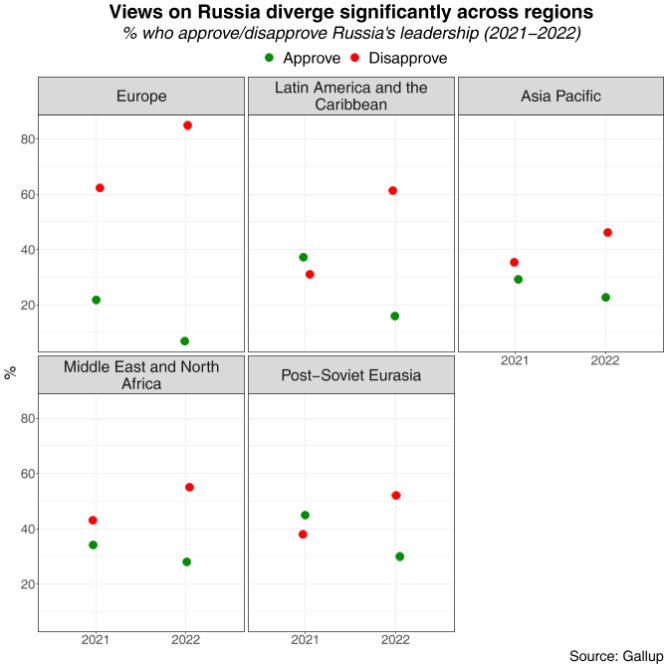Welcome to this edition of the Weekly Political Compass from Teneo’s political risk advisory team.
This week, we are taking a closer look at Ukrainian grain exports to Central and Eastern Europe. Meanwhile, Japan’s prime minister is set to reshuffle his cabinet, elections in Russia returned the expected results, and Brazil is now taking on the rotating G20 presidency. Our graph of the week zooms in on the global divisions reflected in the G20 summit communiqué.
Global Snapshot
An EU ban on the import of wheat, maize, rapeseed and sunflower seeds from Ukraine to Bulgaria, Hungary, Poland, Romania and Slovakia expires on 15 September. Our Central and Eastern Europe expert Andrius Tursa analyzes the situation.
Will the ban be upheld?
Unless the European Commission (EC) extends the ban, countries like Poland or Hungary intend to impose unilateral import bans to protect domestic farmers against the influx of cheap produce from Ukraine. Such unilateral actions could result in infringement procedures from the EC and trigger legal challenges from Ukraine.
How will the CEE states respond?
Budapest and Warsaw will likely prioritize domestic interests, especially ahead of the parliamentary elections in Poland on 15 October. However, the CEE countries are unlikely to impose any restrictions on the transit of Ukrainian agricultural products to third countries.
What to Watch
ASIA PACIFIC
China
Three provincial capitals and three other large cities have lifted home purchase restrictions over the last week, after the central government earlier this month gave local governments the green light to strengthen support for the struggling housing market. In a sign that policymakers are escalating housing stimulus in response to a market slowdown that is dragging down the broader economy, Jinan, Qingdao, Nanjing, Shenyang, and Dalian have all removed various rules that were intended to curb housing speculation.
Indonesia
Ganjar Pranowo, the former central Java governor and presumptive presidential nominee of PDI-P, could announce his running mate this week, and the expectation is that it could be former west Java governor Ridwan Kamil. Both were very popular in their respective provinces and have good administrative credentials – traits that worked for President Joko Widodo. However, for now Ganjar still trails defense minister Prabowo Subianto and how much of a lift Kamil provides remains to be seen. Last week, former Jakarta governor Anies Baswedan named Muhaimin Iskandar of the National Awakening Party (PKB) as his VP candidate.
Japan
Prime Minister Fumio Kishida is set to reshuffle his cabinet as well as top officials in the ruling Liberal Democratic Party on 13 September.Kishida’s goals are to reset the image of his scandal-weakened administration ahead of a snap general election possible within 6-9 months, strengthen his allies, and lessen the influence of those who might seek to challenge his re-election as LDP leader in September 2024. The PM was also thought to be considering adding the small centrist Democratic Party for the People (DPP) to the two-member ruling coalition, but it now looks unlikely that a deal could be agreed in time.
EUROPE
Russia
As anticipated, the governing United Russia (UR) party claimed an overwhelming victory in federal, regional and local votes on 8-10 September. Meanwhile, President Vladimir Putin is heading to the annual Eastern Economic Forum (EEF) in Vladivostok. According to preliminary results, UR won by-elections for all four vacant seats in the State Duma, claimed victories in 19 out of 21 elections of regional governors and is leading virtually all regional legislative votes, including in the four annexed regions of Ukraine. So far, no significant protests have been reported. The highly managed votes do not accurately reflect public sentiment, but rather indicate strong control by authorities over the political landscape and processes. Following a solid performance of the “presidential” party, Putin on 12 September is set to participate in the EEF in Vladivostok, Russia’s Far East, where he might also meet North Korean leader Kim Jong-un.
LATIN AMERICA
Argentina
Patricia Bullrich, presidential candidate for the Together for Change (JxC), will be relieved by yesterday’s provincial election result in Santa Fe; JxC won a convincing victory. Turnout was up, the Peronist vote collapsed, and the local libertarian gubernatorial candidate fared poorly. However, extrapolating wider lessons from specific provinces can be problematic. JxC had formed a mega-coalition in the province that included local Socialists, while the libertarian candidate in Santa Fe was only loosely associated with Javier Milei. In the August primary vote, Milei performed well at provincial level despite his party’s lack of success in previous local votes. Nonetheless, Bullrich will be hoping that the result – alongside the recent unveiling of Carlos Melconian as her pick for economy minister – gives her campaign new impetus. The next provincial test comes on 17 September in Chaco province. Chaco is a long-term Peronist stronghold where conditions look ripe for political change.
Brazil
President Luiz Inacio Lula da Silva is heading back to Brazil this week after taking part in the G20 meeting in India and assuming the one-year presidency of the group. In his final speech, he mentioned that Brazil would prioritize the fight against hunger, poverty and inequality, energy transition, sustainable development, and a reform of the international governance system. He met with heads of state from France, Saudi Arabia, the Netherlands, India, Turkey and Egypt as well as the Presidents of the European Union and the European Council. He retracted from a comment made to an Indian channel that Russian President Vladimir Putin could attend the next summit of G20 leaders in Brazil without risking arrest. He emphasized that Mercosur wants and needs an agreement with the European Union but said that negotiations should stop in the absence of progress this semester.
Graph of the Week
The absence of more specific references to Russia’s invasion of Ukraine in the G20 summit communiqué reflects continuously deep divides between the major world economies. G20 host India has maintained ties to both Russia and the West while aiming at becoming a leading voice for emerging markets; the admission of the African Union into the G20 should also be seen in this wider context. While multilateralism remains alive, attention should be paid to less-aligned middle players in the emerging market space. The chart above, for instance, shows that disapproval of Russia’s leadership has increased only modestly in many regions around the globe.






